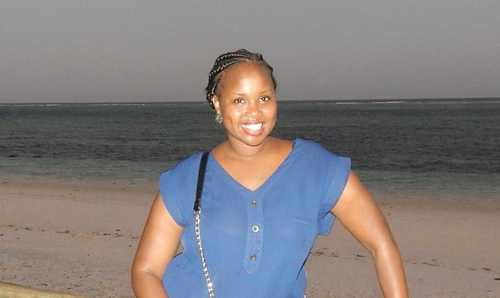Fiona Uwera
MSc International Development: Economics and Management of Rural Development
Why did you choose to study at The University of Manchester?

I identify as both Rwandan and Ugandan. Having done my undergraduate in Canada, I was exploring post-graduate options in the UK for various reasons – change in environment, the reputation of the UK education system not to mention the one-year post-graduate period was also appealing to me. I then started researching several universities, and The University of Manchester stood out to me. The school of development had quite a number of specializations – and it is the only university with exactly what I wanted to do – Economics and Management of Rural development. The university was also highly ranked and had already made a name for itself so I thought this would be a plus on my CV. I was self-sponsored, so I found the University quite affordable in comparison with other universities in the same league and was also excited to have a field visit abroad as part of the course.
Why did you choose your particular course?
I had an undergraduate background in Economics (BA Economics) and was interested in building on this with a focus on development and poverty reduction, something I am very passionate about. I envisioned myself returning back home and was keen on contributing to the development agenda, particularly on “management of rural development” that impacts the majority of livelihoods in Africa.
My thesis looked at productivity and agriculture, particularly on analysing the impact of the Plan for Modernization of Agriculture (PMA) in addressing agricultural productivity constraints of small-scale farmers in Uganda. The Plan for Modernisation of Agriculture (PMA) is part of the Government of Uganda’s broader strategy of poverty eradication and is a holistic, strategic framework for eradicating poverty through multi-sectoral interventions enabling the people to improve their livelihoods in a sustainable manner.
My thesis supervisor was Dr Admos Chimwohu. He was very supportive and while doing my thesis, speaking with him always made me think outside the box. He challenged me, encouraged me, and pushed me until I was able to get it done.
Has your qualification helped you in your career?
I believe it has helped me in my career – Once I returned home, I applied for several jobs and 90% I got a call back and was invited for interviews. The HR of my first postgraduate job called me in and told me he looked through my CV and found my profile quite interesting – he asked me lots of questions about Manchester and the course I pursued. The British education system is also appreciated in the job market and is known to be challenging so excelling is a big plus.
What is your best memory from your time at Manchester?
The University has a lot of resources for everything – academics, social and networking events, and psych-social support, to mention but a few. I truly appreciated the commitment of the lecturers – they were easily accessible and if you felt like you were struggling, they would easily connect you with PhD students. In Manchester, you never felt alone in your journey. The University was also very multicultural so there were lots of opportunities to meet and interact with people from all over the world. My specialization had only 5 people and we were all from different countries and are all in touch today.
Do you have any tips or advice for current or prospective students?
Make the most of your time in Manchester, it is a tough one year – but resources are available with a very supportive academic staff. You will not leave Manchester the same – I felt it prepared me mentally to take any challenge and failing wasn’t an option. All the best to current and prospective students – It is a decision you will not regret.
